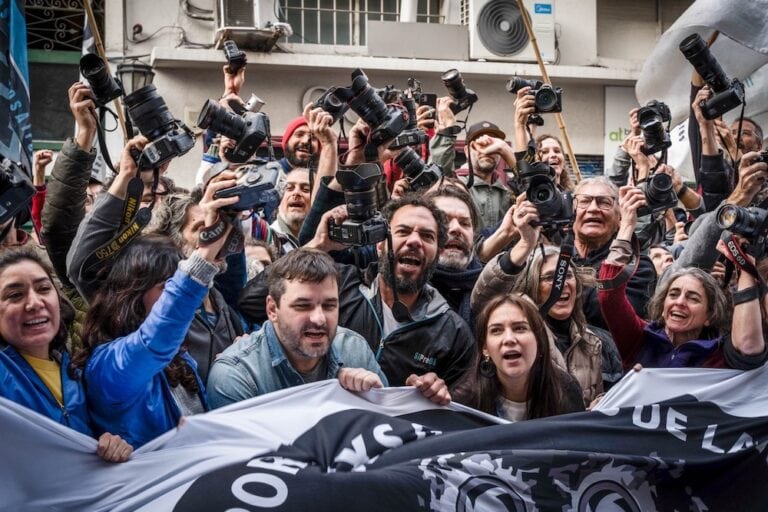(FOPEA /IFEX) – The following is a statement from FOPEA, an interim member of IFEX: Penal complaint against Argentine presidential candidate for discriminating against journalists On 5 September 2007, Cristina Fernández de Kirchner, first lady and presidential candidate for the governing political party, was accused in a penal complaint of discriminating against Argentine journalists during […]
(FOPEA /IFEX) – The following is a statement from FOPEA, an interim member of IFEX:
Penal complaint against Argentine presidential candidate for discriminating against journalists
On 5 September 2007, Cristina Fernández de Kirchner, first lady and presidential candidate for the governing political party, was accused in a penal complaint of discriminating against Argentine journalists during a recent tour of Spain.
The complaint was made before the Eighth Criminal and Correctional Court in Buenos Aires by Marta Carraro, a lawyer and mayoral candidate of a town in Buenos Aires province. Carraro is a member of the opposition Civic Coalition (CC).
The complaint also implicated presidential spokesperson Miguel Núñez and Argentine ambassador to Spain Carlos Bettini.
During her official visit to Spain, the first lady was received by King Juan Carlos of Spain, by Spanish president José Luis Rodríguez Zapatero and by opposition leader Mariano Rajoy. Among other things, she paid homage to the victims of the 11 March 2004 terrorist attack at Atocha train station. She also spoke before a leading group of Spanish businessmen, the Spanish Confederation of Business Organizations.
“During her tour, Mrs. Cristina Fernández de Kirchner gave interviews to Spanish news media (‘El País’ newspaper, for example) and to U.S. media (CNN’s Spanish channel) but expressly excluded members of the Argentine press. This goes to say, she discriminated for reasons of nationality the attempts by Argentine journalists to have access to information so as to be able to report on her activities for the benefit of the people of Argentina,” Carraro said in her complaint.
The complaint accused Mrs. Kirchner of failing to carry out the duties and obligations of a public official. It accused Nuñez and Bettini of being accomplices. The complaint was also made at the National Institute against Discrimination, Xenophobia and Racism (INADI).
Carraro made reference to Article 1 of Argentina’s Constitution, which says that Argentina has “a representative, Republican, federal” form of government. She also cited legal experts in saying that the Republican form of government is defined as a system with checks and balances, and characterized by the responsibility of public officials to report openly on the acts of government and uphold the equality of all in the eyes of the law. She also mentioned Article 33 of the Constitution, which underscores the obligation of public officials to report on their activities; the article specifically states that “the sovereignty of the people” is the source of all the powers of the government.
The complainant explained in the document that the only journalists who had access to the first lady were those who “were under orders of the state,” such as those who work for the state news agency, TELAM. “But the fact is that a group of journalists was impeded from doing their jobs solely due to the fact that they are Argentines, or also due to their presumed political ideas regarding the activities of the government.”
President Nestor Kirchner and Mrs. Kirchner, currently a Senator representing Buenos Aires province, have rarely had direct contact with national news organizations, saying that they prefer to speak directly to the people without the intermediation of the media. The president has never held a formal press conference.
The Forum for Argentine Journalism, a group representing over 200 Argentine journalists, has repeatedly requested audiences with the national government to explain the importance of news conferences and contact between journalists and the nation’s highest authorities.


